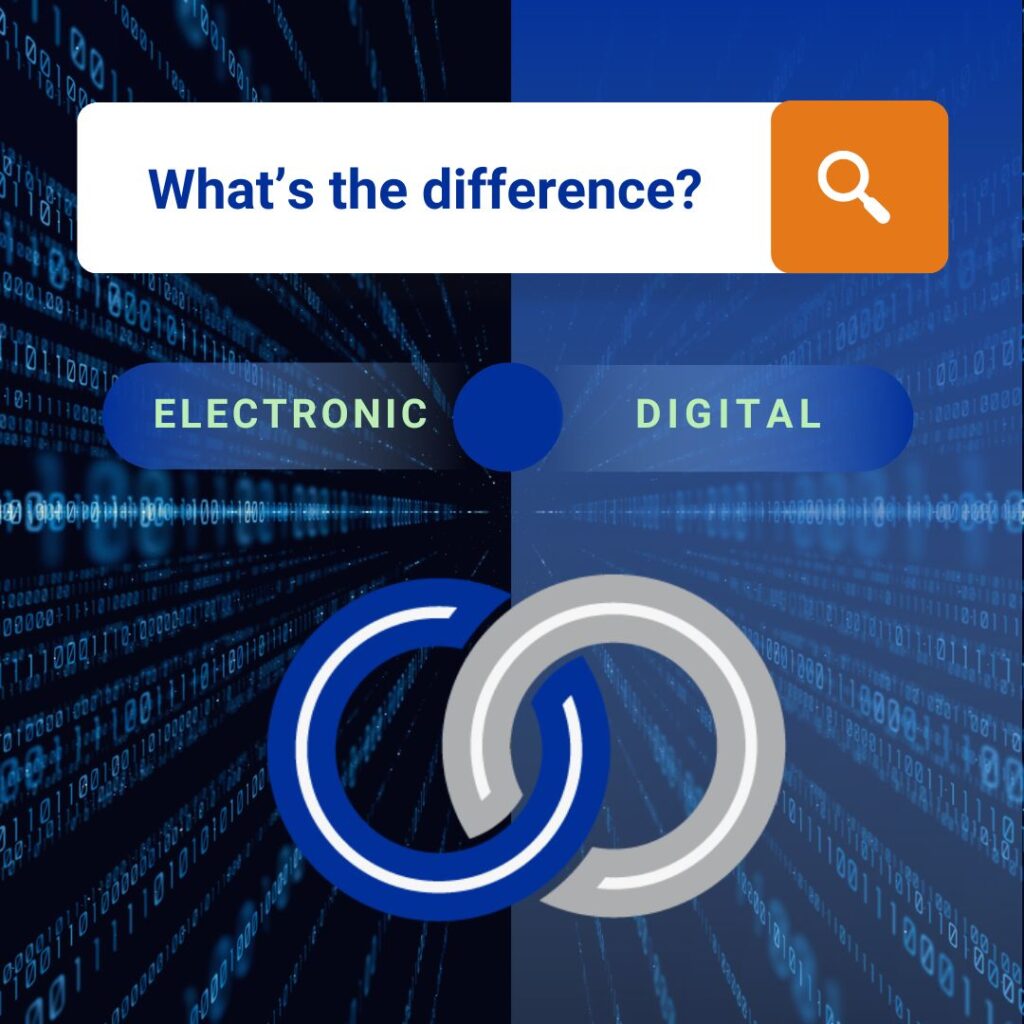 Digital transformation might sound like a buzzword—but the undeniable success of companies that have embraced it over the past decade proves it’s a powerful and tangible strategy. So what is digital transformation? At its core, it’s all about aligning your business to make the most of cutting-edge technologies to make your business more efficient, more effectively understand your customers’ wants and needs, and seize opportunities to expand your business models.
Digital transformation might sound like a buzzword—but the undeniable success of companies that have embraced it over the past decade proves it’s a powerful and tangible strategy. So what is digital transformation? At its core, it’s all about aligning your business to make the most of cutting-edge technologies to make your business more efficient, more effectively understand your customers’ wants and needs, and seize opportunities to expand your business models.
EDI and digital transformation go hand-in-hand to elevate your business. In this article, we’ll dive deep into all the ways digital transformation benefits your organization, the benefits of EDI integration as a necessary component for successful transformations, and how outsourced cloud EDI streamlines the process of transforming your organization.
Table of Contents
Reaping the 3 Business Benefits of Digital Transformation
Plenty of ink has been spilled over the years about the benefits of digital transformation. The full extent of all the ways digital transformation can benefit your business could make your head spin, so we’ll keep it simple and break down the three key benefits you stand to reap from taking the reins of digital transformation with EDI:
Key Benefit 1: Transforming Your Business Operations
The most important and impactful benefit of EDI and digital transformation isn’t something your customers or trading partners can see happening—it’s something that happens behind the scenes. What your customers and trading partners can see are the effects of digital transformation on your business operations, as these benefits lay the foundation for your organization to become more customer-centric and reshape its business models.
Digitalization of Business Operations
- Automation of routine tasks reduces manual labor and increases efficiency.
- Use of AI and machine learning for predictive maintenance and operations optimization.
- Digital platforms enable real-time monitoring and management of business processes.
Greater Resource Management
- Enhanced tracking of resources leads to optimized use and reduced waste.
- Cloud-based solutions provide flexible and scalable resource management tools.
- Integration of IoT devices for smart inventory management and logistics.
Employee Empowerment
- Access to digital tools and data empowers employees to make informed decisions.
- Remote work technologies improve work-life balance and attract talent.
- Continuous learning and skill development through online platforms.
Key Benefit 2: Becoming More Customer-Centric
One of the most outwardly obvious ways digital transformation benefits your business is in the way it enables you to change how you interact with your customers. Using EDI in digital transformation strategies elevates your enterprise into a more customer-centric organization by making it easier to identify and track customer preferences and cater to their needs.
Greater Customer Insights
- Advanced analytics and big data offer a deeper understanding of customer behaviors and preferences.
- Social media and online feedback mechanisms provide real-time customer sentiment analysis.
- Personalization of products and services based on customer data enhances satisfaction.
Better Customer Experience
- Omnichannel support ensures a seamless customer journey across all touchpoints.
- AI chatbots and virtual assistants provide 24/7 customer service.
- Customized user experiences through data-driven insights improve engagement and loyalty.
Key Benefit 3: Revolutionizing Business Models
Using EDI and digital transformation together do more than improve your ability to satisfy the wants and needs of your customers—they also empower you to change your business model by grasping new opportunities to offer digital products and services to global markets:
Creating Digital Products and Services
- Development of digital-only products expands market reach and reduces production costs.
- Subscription-based models offer new revenue streams and customer engagement strategies.
- Leveraging technology to enhance traditional products with digital features.
Opening the Door to Globalization
- Digital platforms enable businesses to reach global markets with minimal physical presence.
- Cross-border e-commerce facilitated by digital payment and logistics solutions.
- Cultural and regulatory adaptation supported by global insights and localization technologies.
How EDI Enables Digital Transformation
As we’ve detailed thus far, EDI and digital transformation are part and parcel. You simply can’t reap the rewards of digital transformation without properly utilizing EDI—the two are essentially inseparable. EDI, alongside other modern data exchange standards such as API, enables a significant portion of the rapid, seamless, automated, and cost-effective exchange of business documents and information that digital transformation requires to truly transform your business.
Streamlining Communication and Data Exchange
EDI provides the enhanced data accuracy and speed you need in data transfers to fully implement the digital tools and processes involved in your digital transformation. Because EDI is a widely-used data standard with over half a century of history, it seamlessly integrates with almost every existing business system to better coordinate your operations.
Enhanced Data Accuracy and Speed
- Immediate transfer of documents reduces lead times and errors associated with manual entry.
- Real-time data exchange supports just-in-time manufacturing and inventory management.
- Improved data quality through standardized formats enhances decision-making processes.
2. Integration with Existing Business Systems
- Seamless flow of information between ERP, CRM, and supply chain management systems.
- Automated data synchronization reduces discrepancies and improves operational efficiency.
- Facilitates end-to-end visibility across the supply chain for better coordination and planning.
Reducing Costs and Improving Efficiency
Digital transformation can feel daunting, but using EDI in digital transformation renders it far less so. EDI improves both your process efficiency and your cost efficiency, laying a solid foundation for your digital transformation to make your organization more agile and light on its feet in times of disruption.
Lower Transaction Costs
- Elimination of paper-based processes significantly cuts down administrative and material costs.
- Reduced need for physical storage and manual handling lowers operational expenses.
- Economies of scale achieved through the electronic processing of transactions.
Faster Transaction Processing
- Instantaneous processing of orders and invoices accelerates the business cycle.
- Enhanced responsiveness to market demands through faster turnaround times.
- Improved cash flow management with quicker receipt and processing of payments
The Role of Outsourced Cloud EDI in Digital Transformation
Generally speaking, there are two ways to implement EDI in your organization: you can maintain EDI systems and standards yourself, using your own IT team and your own server infrastructure, or you can turn to a managed EDI service provider and cloud infrastructure.
While there are benefits to each option, many businesses run into difficulties seamlessly and cost-effectively maintaining EDI-compliant systems with an in-house team, due to the upfront costs of EDI systems and necessary hardware or software as well as the costs of maintaining EDI expertise in their teams.
Outsourced EDI helps digital transformation efforts succeed by removing these roadblocks and making EDI expertise more available and cost-effective.
Simplifying EDI Implementation and Management
With a managed EDI service provider on your side, it’s easier to implement EDI for digital transformation in your organization, since your own team won’t have to do the heavy lifting.
Lowering the Barrier to Entry for SMEs
- Cloud EDI services offer cost-effective solutions without the need for large capital investments.
- Pre-configured templates and user-friendly interfaces facilitate quick setup and adoption.
- Access to expertise and support from EDI providers enhances operational capabilities.
Ensuring Scalability and Flexibility
- Easy adaptation to changing business needs and volumes without significant infrastructure changes.
- Cloud services offer global accessibility and the ability to quickly expand into new markets.
- Integration capabilities allow for seamless addition of new partners and customers.
Enhancing Security and Compliance
Elevating your business also elevates its cybersecurity risk profile. In addition, as your business model evolves, so too do the demands you face for compliance with relevant industry regulations and standards. Managed EDI helps you maintain both security and compliance so you can grow without the risk of cyber threats striking a blow against your operations or running afoul of new regulatory standards you must uphold.
Robust Data Security Measures
- Encryption, secure data transmission, and regular security audits protect sensitive information.
- Cloud providers adhere to stringent industry standards and certifications.
- Disaster recovery and data backup procedures ensure business continuity.
Simplifying Compliance with Industry Standards
- Automated updates and compliance checks reduce the risk of non-compliance penalties.
- Expertise in regional and global regulations aids in navigating complex compliance landscapes.
- Enhanced traceability and reporting capabilities support audit processes and regulatory requirements.
Take Full Advantage of EDI for Digital Transformation With GraceBlood
EDI has a natural role to play in facilitating your business’s digital transformation—as long as it works for you. Unfortunately, many businesses share a common experience that prevents them from making the most of EDI in digital transformation—they find themselves working for EDI instead of EDI working for them.
Both in-house and cloud EDI solutions can end up not fitting your business’s unique needs and goals, and in either case, EDI will end up getting in the way of your transformation instead of enabling it. Switching to a better cloud EDI provider can help—and it could be a lot easier to switch than you might think.
GraceBlood has helped companies of all shapes and sizes in a wide range of verticals build EDI solutions tailored to their unique needs—EDI that truly lightens the burdens of communicating within your organization and with your trading partners and frees your business to seize the reins of its own digital transformation.
Reach out to our EDI specialists today to get started.
EDI Digital Transformation FAQs
- What is digital transformation and how does it relate to EDI integration?Digital transformation involves leveraging technologies to enhance business operations, better understand customer needs, and explore new business models. EDI plays a crucial role in digital transformation by streamlining communication and data exchange processes, reducing costs, and enhancing efficiency.
- How does EDI enable businesses to become more customer-centric?EDI facilitates digital transformation by providing tools for businesses to gather and analyze customer data more effectively. Through advanced analytics, businesses can gain deeper insights into customer behaviors and preferences, personalize products and services, and ensure a seamless customer experience across multiple channels.
- What role does outsourced cloud EDI play in digital transformation?Outsourced cloud EDI services simplify the implementation and management of EDI systems, making them more accessible and cost-effective for businesses. Cloud-based solutions offer scalability, flexibility, and enhanced security measures, allowing organizations to focus on their digital transformation goals without the burden of maintaining EDI infrastructure in-house.
- How does EDI integration enhance business operations in the context of digital transformation?EDI integration automates routine tasks, enhances resource management, and empowers employees with access to digital tools and data. This enables organizations to optimize processes, improve decision-making, and embrace remote work technologies, laying the foundation for successful digital transformation.
- Why is EDI crucial for revolutionizing business models during digital transformation?EDI enables businesses to create digital products and services, expand into global markets, and adapt to changing customer demands. By leveraging EDI alongside digital transformation initiatives, organizations can explore new revenue streams, enhance customer engagement, and stay competitive in the digital age.








